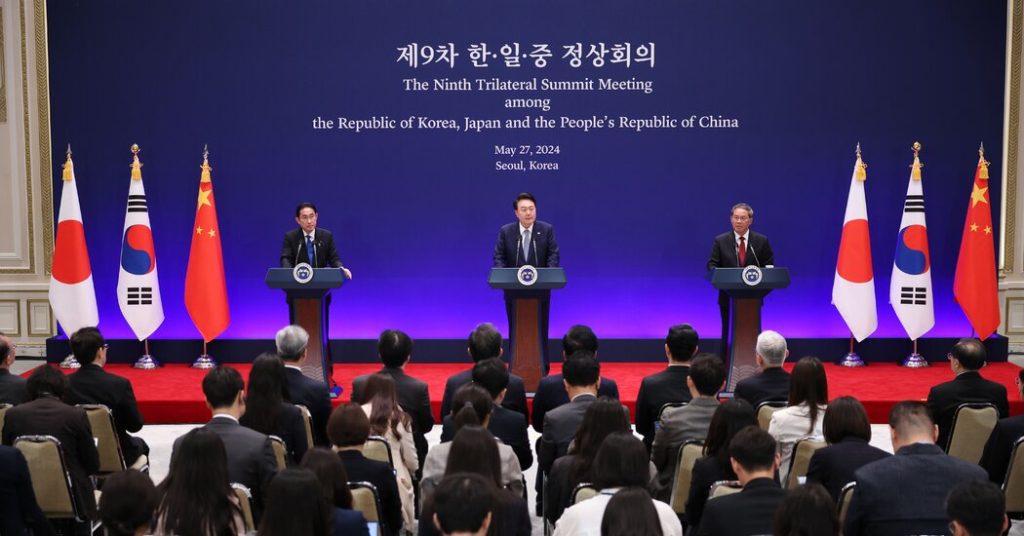The leaders of South Korea and Japan recently engaged in a trilateral meeting with China to restore economic cooperation, their biggest trading partner, after years of strained relations. The talks focused on protecting supply chains, promoting trade, and collaborating on shared challenges such as aging populations and emerging infectious diseases. While the leaders avoided discussing regional security issues like Taiwan and North Korea, tensions were highlighted by North Korea’s plan to launch a long-range rocket, and its expanding arms trade with Russia.
South Korea and Japan have called on China to exert its economic influence to curb North Korea’s nuclear and missile programs. However, Beijing has been reluctant to intervene, viewing North Korea as a buffer against American military presence in the region. Despite strong criticism from South Korea and Japan, China’s Premier Li Qiang refrained from denouncing North Korea’s satellite launch plan during the trilateral meeting, calling for restraint and a political settlement instead.
The trilateral summit, the first since December 2019, aimed to revive regional cooperation amid escalating strategic competition between the United States and China. The geopolitical landscape has grown increasingly tense, with China expanding its military presence and territorial ambitions in the South and East China Seas, while the US, Japan, and South Korea have bolstered their security cooperation in response. Analysts view the revival of the trilateral summit as a sign of common interests compelling Beijing and its neighbors to come together.
China, Japan, and South Korea collectively account for over one-fifth of global economic output and rely on regional stability and cooperation, particularly in supply chains, to overcome the economic slowdown caused by the pandemic. Despite the importance of their alliance with the United States, Japan, and South Korea face pressure from domestic businesses seeking improved access to the Chinese market. China, in turn, is offering greater market access to court its neighbors and reduce US influence, with the resumption of talks on a free-trade agreement between the three countries symbolizing a strategic shift towards economic cooperation for peace and stability.
The increased cooperation between Japan and South Korea has led to improvements in their bilateral relations, which were historically strained by disputes. Both countries have also strengthened military cooperation with the US to deter threats from North Korea and China. During bilateral talks, South Korea and China agreed to establish new channels for discussing security matters and supply chain cooperation, while Japan called for the release of Japanese nationals detained in China on suspicion of espionage.
South Korea’s shift towards closer alignment with the US has coincided with a decline in exports to China, leading the US to replace China as South Korea’s largest export market for the first time in two decades. As China, Japan, and South Korea seek to navigate the evolving geopolitical landscape, maintaining regional peace and stability through economic cooperation has become a key priority for the three nations.








